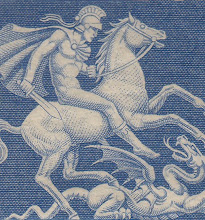This does not mean that I'm against trying to help some of these countries, but I believe that, in general, it should only be given when needed to meet some unforeseen emergency and not as a matter of routine where at the best it is used to prop up the country's budget leading to a form of dependency. Indeed the foreign minister of one African country (I forget which) recently said it would be more help to his country if, rather tha giving aid, the EU simply removed the tariffs on the sale of his country's goods.
I do, however, strongly feel that we should supply emergency aid when necessary; earthquakes, floods, tsunamis, droughts, disease epidemics, etc, are generally unforeseen and the poorer countries simply don't have the resources to take any effective action.
I am pleased to see that at last our government is beginning to see sense on this issue and wants more UK involvement in the aid and to this end it is intended to direct some of the money towards British companies who are providing services in the poorer countries. It has also said that peace-keeping operations should come out of the Aid budget rather than from the Defence budget. Hopefully, this will apply to the military assistance being provided in Mali (assuming the French aren't paying us, a reasonable assumption, I would imagine!). We also have troops in Nigeria and other parts of Africa, nominally on training missions, and this, too, I hope, will be classified as aid.
My criteria for aid would be
- Emergencies only.
- Never cash.
- British made goods or British supplied services (Thus helping our economy as we help others).
- No luxury goods (these are taken as perks by the elite).
- Goods that are not readily "sold on" by officials for cash.
- All aid to be marked as such, just like the EU insists that the ring of stars is displayed on anything where they have made a contribution.


No comments:
Post a Comment